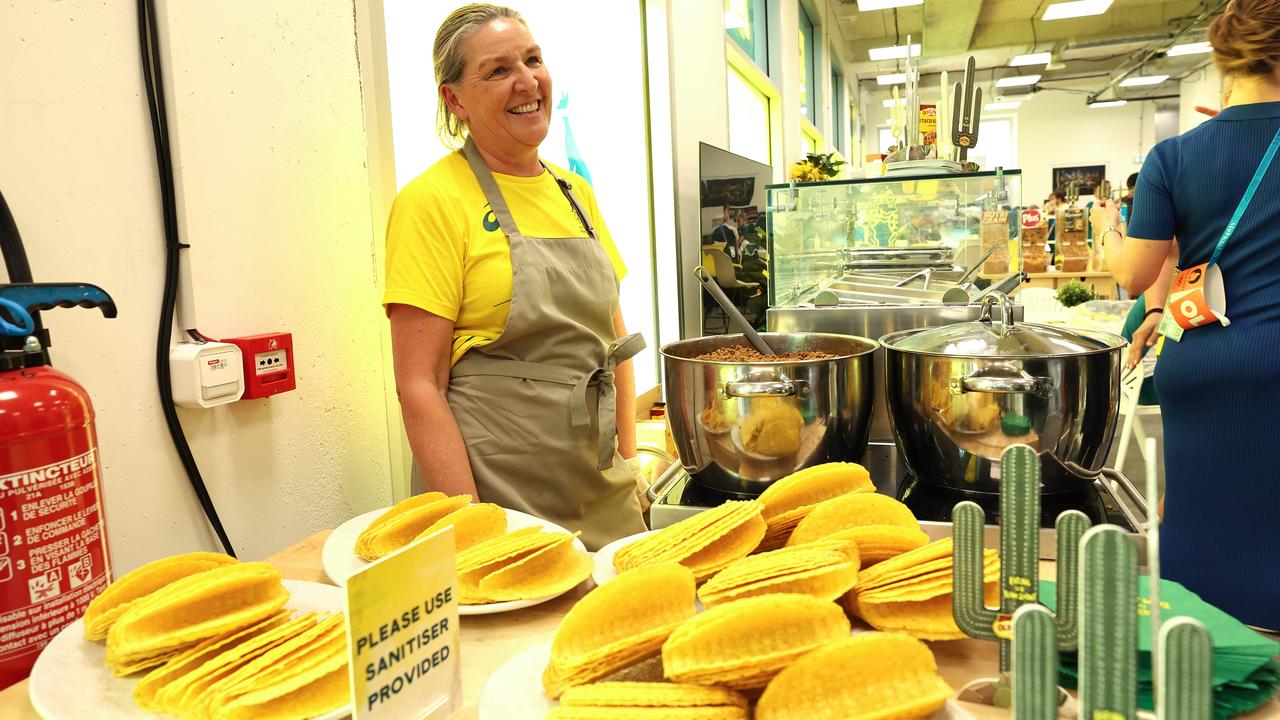Australia’s golden girls break world record as squad takes shape
Ariarne Titmus has broken the world record for the 200 metres freestyle – and so has Mollie O’Callaghan – plus Cameron McEvoy made a little bit of history as swim trials deliver cheers and tears
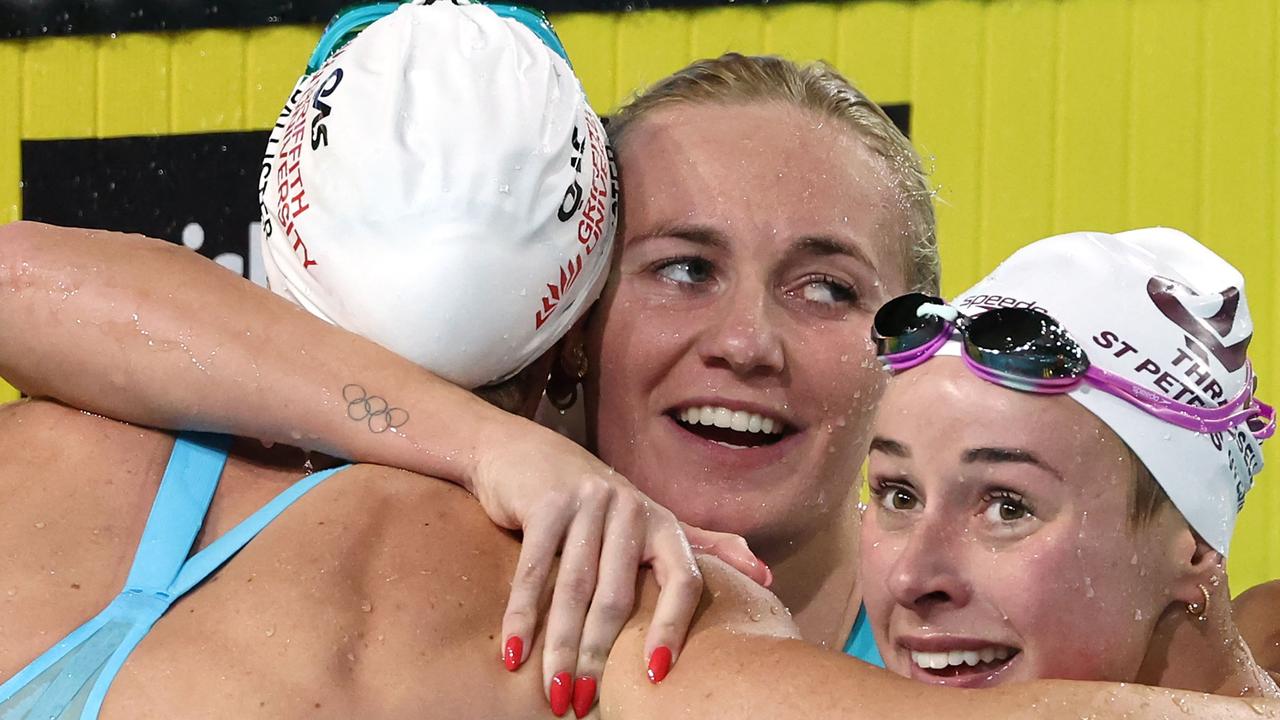
READING LEVEL: GREEN
Australia can officially get excited about the Olympics, because there’s just no stopping Ariarne Titmus.
On Wednesday at the Aussie trials, Arnie smashed the world record for 200m freestyle.
Her time – one minute 52.23 seconds – wiped 0.62 off teammate Mollie O’Callaghan’s previous mark, and added the 200m world record to her 400m world record.
“Honestly, the world record is a bonus,” Titmus said.
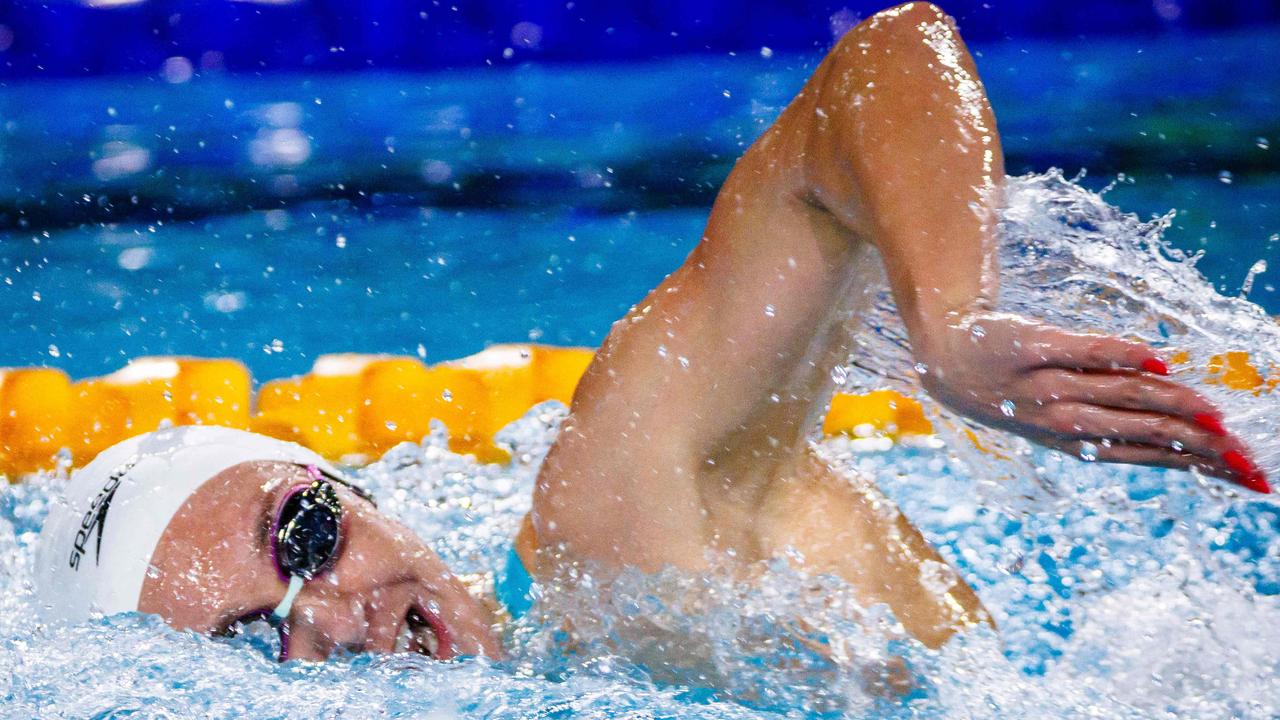
“To finally put it together and put together a swim I know I am capable of, it is exciting to do it in my hometown, in front of a hometown crowd. It gives me really good confidence for the Olympics.”
“I just think that I’m in pretty good form. My 400m was great. I took good confidence from that,” she said.
O’Callaghan also went under her world record, stopping the clock at 1:52.48, so will join Titmus in the individual 200m race with Australia now on track to win both gold and silver.
“We push each other to do the best of our limits,” O’Callaghan said.
“Like what Arnie just said. And the other girls in this relay. It shows how hard we train.”
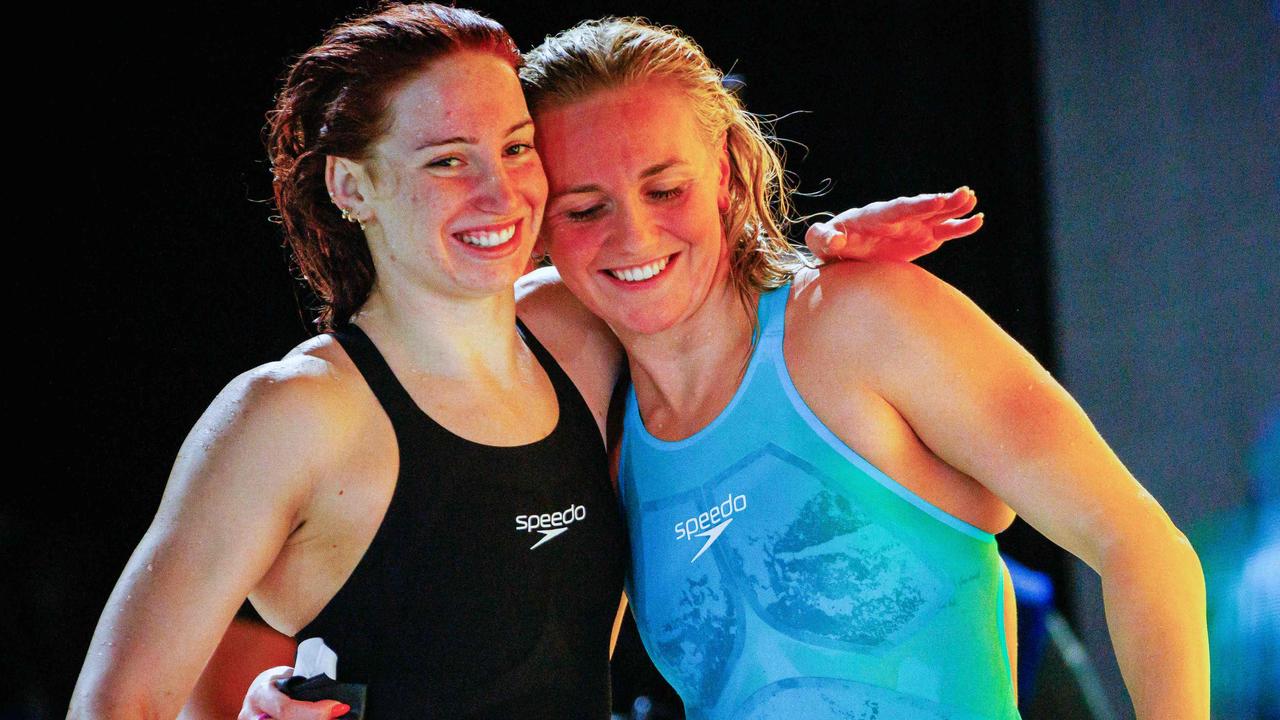
Lani Pallister came third and Brianna Throssell fourth, guaranteeing themselves places in the Australian 4x200m freestyle relay that is heavily favoured to win the gold after finishing with bronze in Tokyo.
Titmus will head to Paris aiming to become the first woman to win back-to-back 200m titles.
If she can repeat the 200m-400m double she completed in Tokyo, she will surpass* the achievements of every Australian swimmer who has come before her, including Dawn Fraser, Ian Thorpe and Shane Gould, who finished their careers with three individual gold medals.
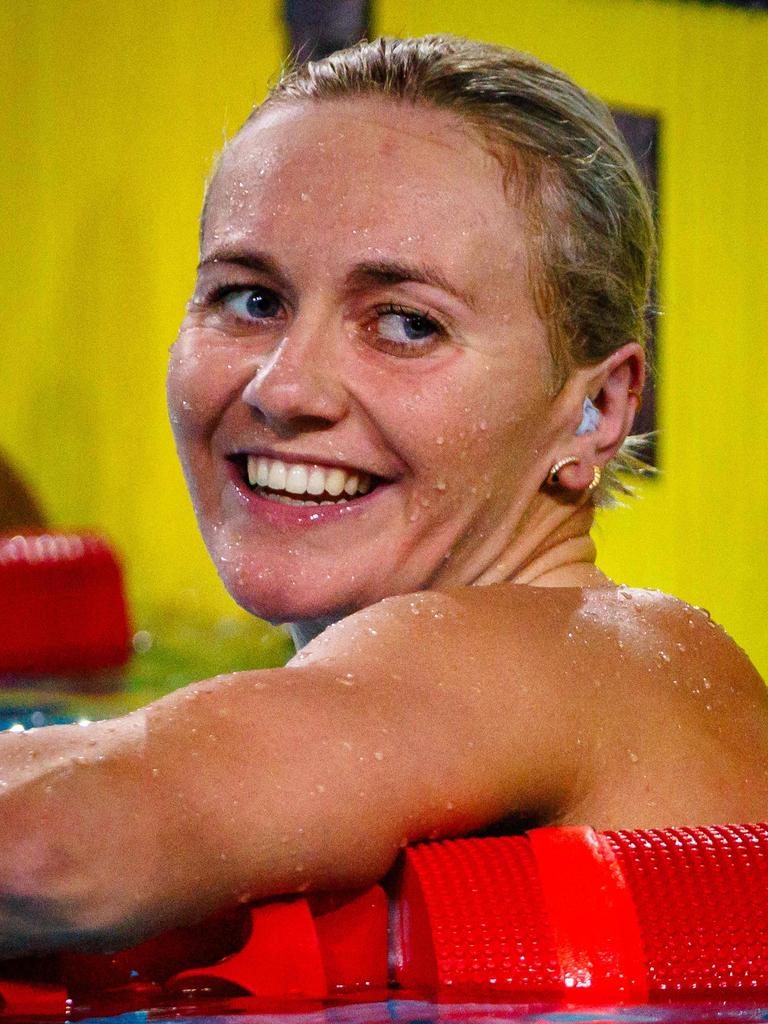
“I’ve always kind of had that belief in myself but it’s one thing having that belief, and it’s another thing actually doing it, and putting races together that are world class and competitive,” Titmus said.
“So it does give me good confidence but the world of swimming never stops, and there are always going to be people swimming fast, and so you can never just expect that the gold medals are going to come your way.”
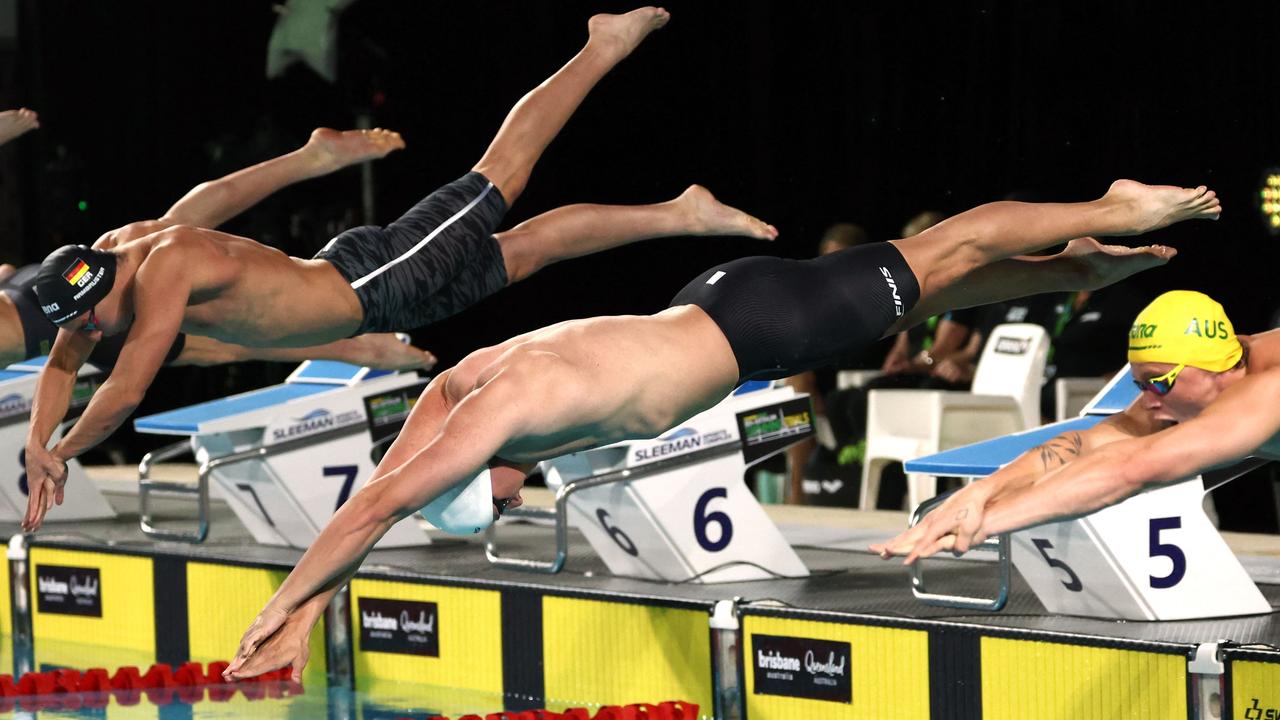
MCEVOY MAKES FOURTH OLYMPIC SQUAD
Meanwhile Cameron McEvoy has become the first Australian male swimmer to qualify for four Olympics, after blowing his rivals away in the 50m freestyle at the Australian trials on Wednesday.
Racing faster than ever at the age of 30, McEvoy surged to a comfortable victory in 21.35 seconds.
Ben Armbruster also qualified for the Paris Olympics, finishing second in 21.84, just ahead of Isaac Cooper.
No Australian man has ever won an Olympic medal in the one-lap sprint but McEvoy is on track to change all that if he can maintain his form over the last 12 months.
“That’s 10 sub-21.5 swims in the last year and 21.5 has medalled at every Olympics,” McEvoy said.
“So if I can keep that consistency, keep a level head, and navigate the environment that is the Olympics, then anything is possible.”
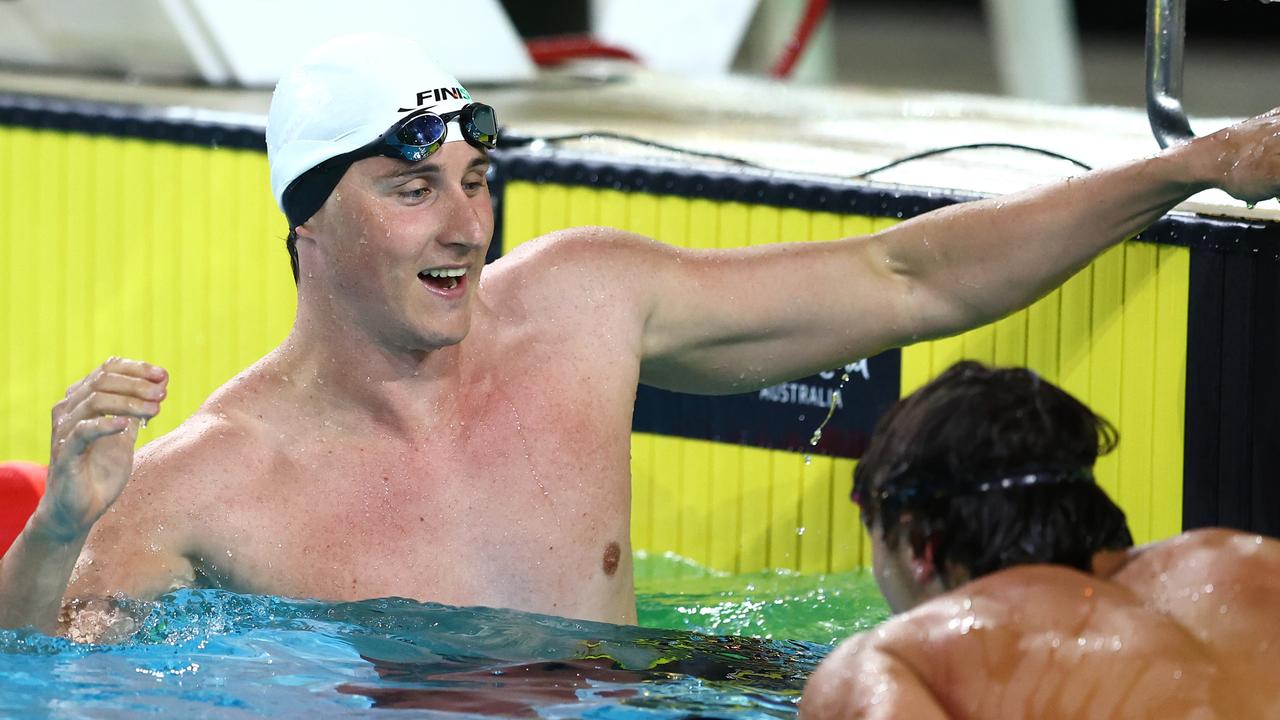
AUSTRALIA’S GOLDEN GIRLS BOOK TICKETS TO PARIS OLYMPICS
Australia’s golden girls of the pool have booked their tickets to the Paris Olympics in July after stunning performances in the qualifying* trials in Brisbane.
Ariarne Titmus is off to her second Games after storming to victory in the 400m freestyle* in 3min 55.44sec – just 0.06sec outside the world record time she set while winning gold at last year’s world championships.
“Swimming that close to the record gives me good confidence,” Titmus said.
“The goal isn’t to swim my best here. The goal is to just book your ticket so I’m excited to see what I can do now in Paris.”
Titmus is hoping to better her 2021 performance when she won two gold medals for Australia at the Tokyo Olympics.
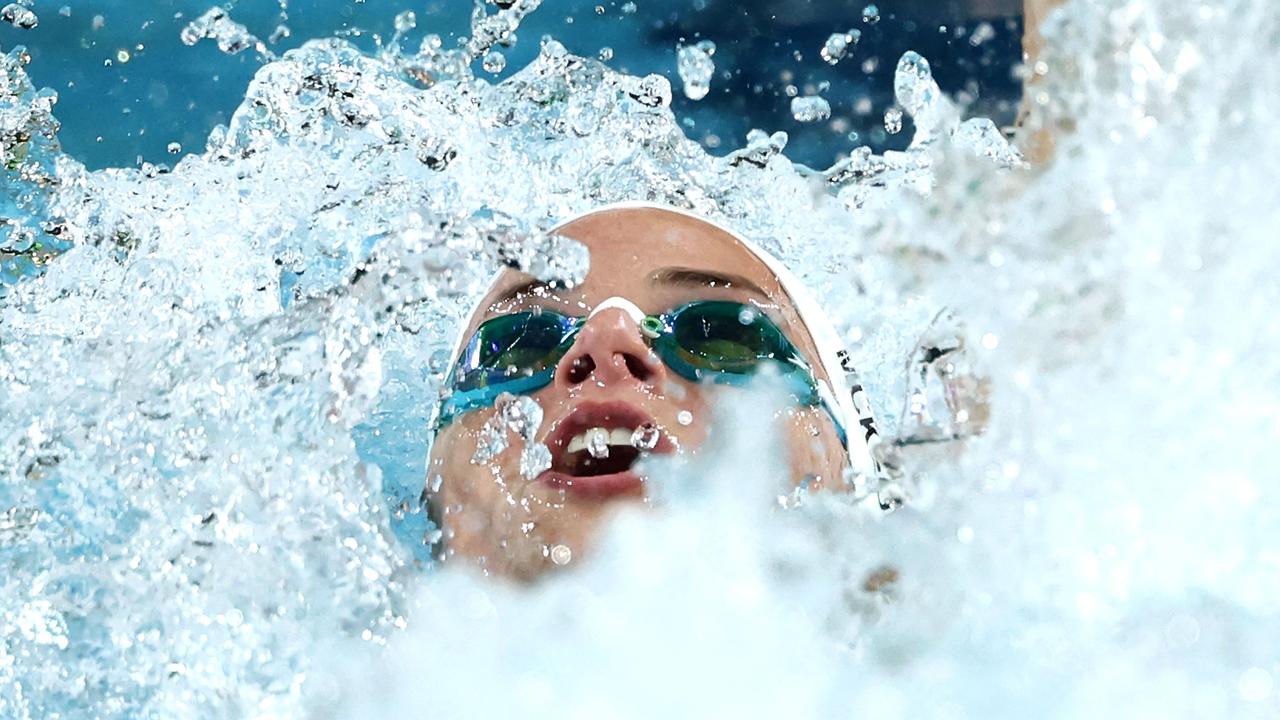
MCKEOWN’S THE ONE TO BEAT
Kaylee McKeown’s quest* to become the queen of the pool is on track after she stamped herself as the woman to beat in the 200m individual medley* with a thundering* victory in 2min 06.63sec — the fastest time in the world this year.
“I feel like I am in more control of my emotions so I’m excited to see what the rest of the year has in store,” McKeown said.
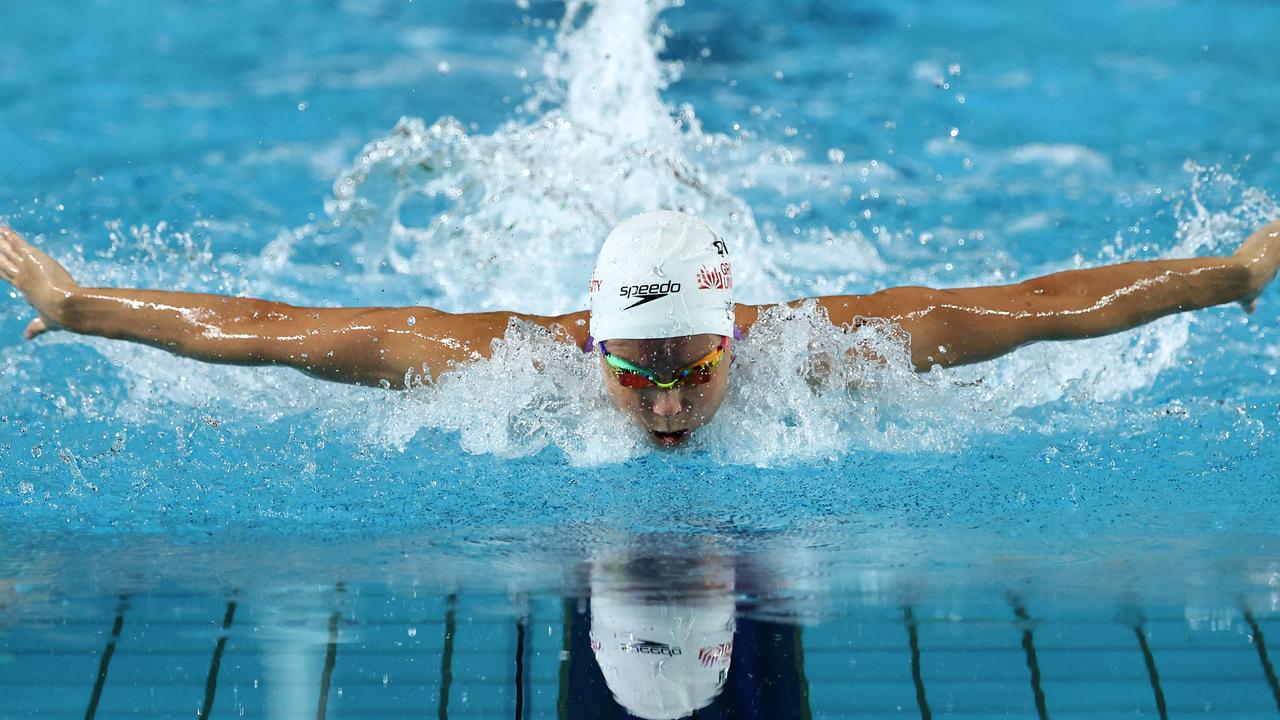
EMMA MCKEON QUALIFIES
Australia’s most successful Olympian, Emma McKeon, is off to her third Games after beating her self doubts and winning the 100m butterfly in 56.85sec.
McKeon was the standout star of the Tokyo Games, winning four gold and three bronze medals, including a third place in the 100m butterfly.
Just a week after she celebrated her 30th birthday, McKeon said she was thrilled to make her third Olympic team having considered retirement after Tokyo.
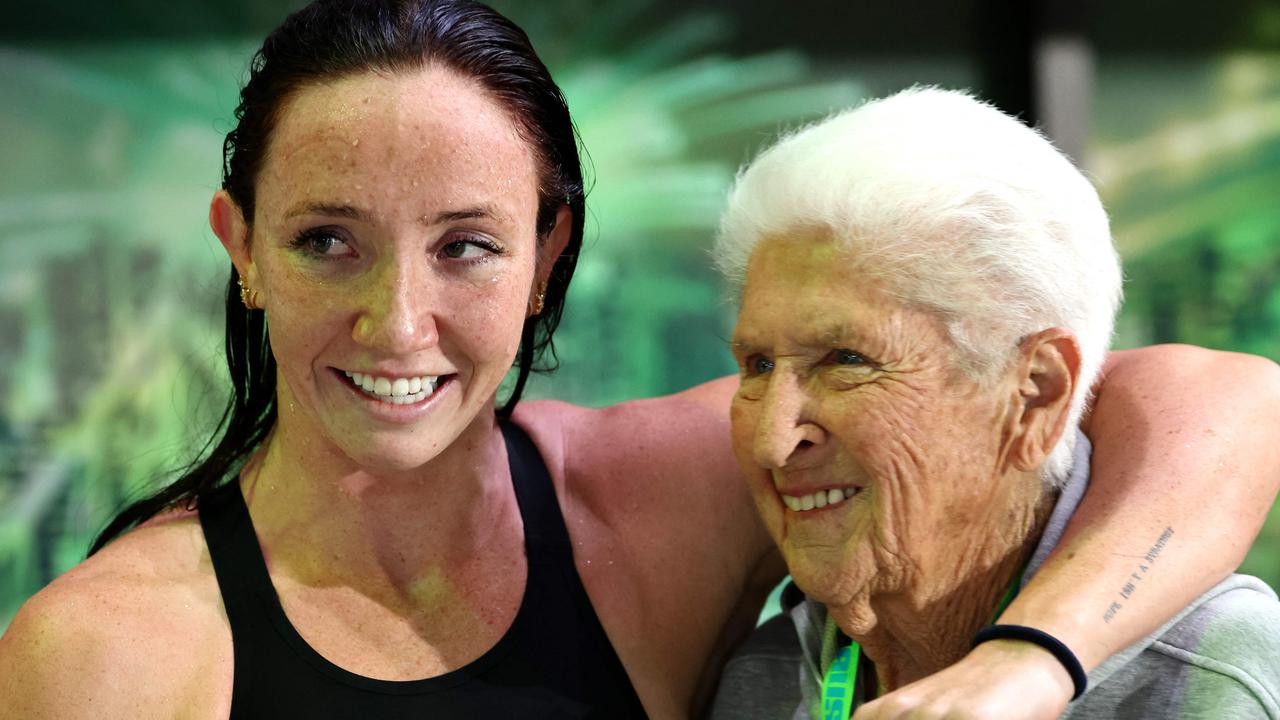
FROM EATING DISORDER TO THE OLYMPICS
Lani Pallister broke down in tears of joy on Monday after completing her epic* comeback from an eating disorder* to qualify for this year’s Olympics in France.
Pallister touched second in 4min 02.27sec behind Titmus in the 400m freestyle to secure her spot, sparking a flood of tears from all who knew the incredible pain the young swimmer had endured.
She missed the Tokyo team after starving herself as a 19-year-old desperate to hit the 4kg weight loss target set by coaching staff.
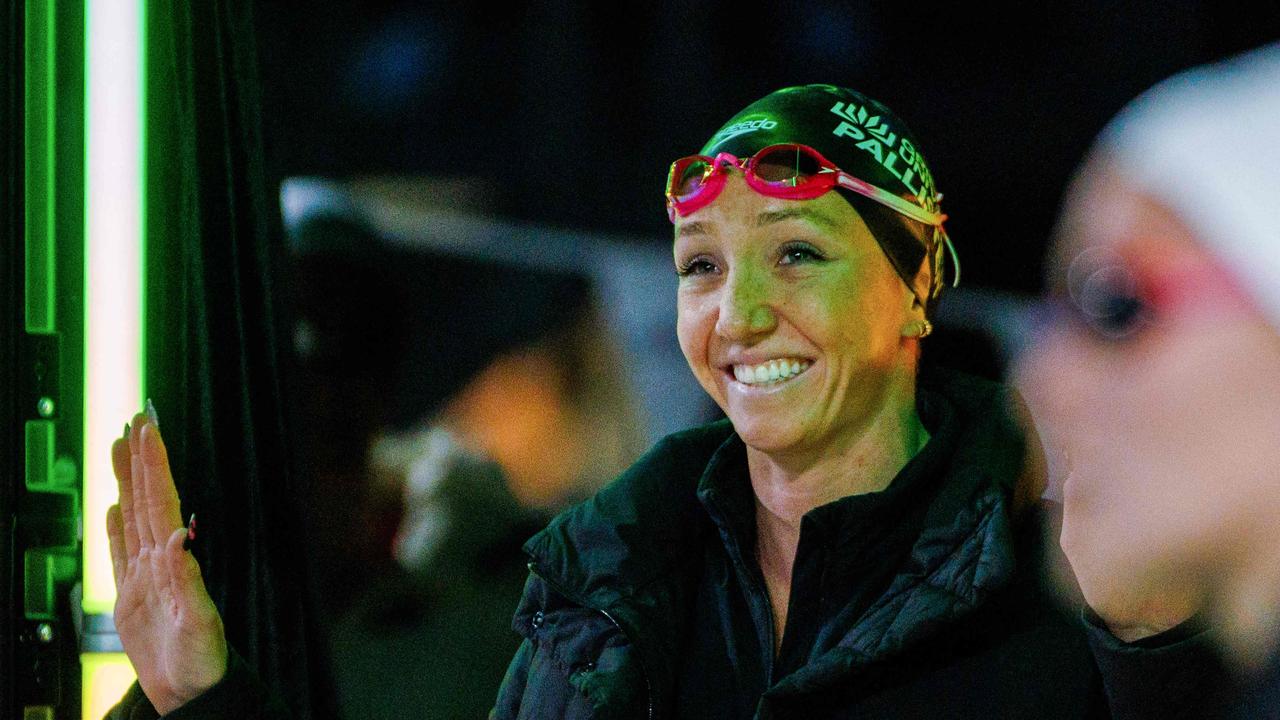
Surviving off just two meals and a couple of coffees per day, it wasn’t until she missed the 2021 team that she finally confessed her battle to even her own mother Janelle Elford, who swam at the 1988 Seoul Games and is now a top coach.
“I can’t really put it into words. When I quit swimming three years ago to where I am now … incredible,” said Pallister.
“I still can’t believe I thought having one, maybe two meals a day was going to allow me to be an athlete. It is such an important thing to talk about.
“Eating disorders come with a lot of shame. You kind of know you are doing the wrong thing. It’s not a healthy coping mechanism*.”
Her mum had suspected all was not right.
“It wasn’t just that she was losing weight, you could see it with the hair, you could see it in the face, you could see it in the eyes, nails. I had an idea that something wasn’t right,” Elford said.
WHO YOU CAN CALL
The Butterfly Foundation: To learn more about disordered eating or body image visit www.butterfly.org.au
For support with eating disorders or body image concerns, you and your parent or guardian can call Butterfly’s National Helpline on 1800 ED HOPE (1800 33 4673), chat online or email support@butterfly.org.au. Counsellors are available seven days a week, 8am-midnight (AEDT) to provide confidential and free advice.
Kids Helpline: 1800 55 1800
WATCH TITMUS AND O’CALLAGHAN BREAK THE WORLD RECORD TWICE
POLL
GLOSSARY
- surpass: to go beyond something else, exceed, be better than or superior to another
- qualifying: achieving the standard needed to compete
- freestyle: a front crawl swim on your tummy using arms and legs
- epic: long and difficult
- eating disorder: a range of conditions in which there is a long-term disturbance of eating behaviour and impact on physical or mental health.
- coping mechanism: strategy used in the face of stress or trauma to help manage painful or difficult emotions
- quest: search for something
- medley: a race with four swimming styles — butterfly, backstroke, breaststroke and freestyle
- thundering: impressive
EXTRA READING
Teen’s sprint ends 24-year Olympic drought
Olympic flame lights path to Paris
14-year-old skater chases Olympics
QUICK QUIZ
- Which country are the 2024 Olympic Games being held in?
- Why was Lani Pallister so emotional after qualifying for Paris?
- What did Pallister’s diet consist of as a 19-year-old?
- What is the world record time for the women’s 400m freestyle?
- Who is Australia’s most successful Olympian?
LISTEN TO THIS STORY
CLASSROOM ACTIVITIES
1. Family ties
This Kids News article outlines family connections in the swimming fraternity in the mother/daughter combination of Lani Pallister and Janelle Elford and her godmother Dawn Fraser.
Why do you think many elite sporting athletes come from a parent or family of elite athletes?
Do you think this connection involves more about family genetics or the routines and lifestyles of these families training with athletes?
Time: allow 15 minutes to complete this activity
Curriculum Links: English, Health and Physical Education, Personal and Social, Critical and Creative Thinking
2. Extension
Swimming Australia has previously been investigated for body shaming and publicly humiliating female athletes about their body shape and size, leading to eating disorders, self-harm, and quitting the sport altogether.
If you were the brother, sister, or friend of Lani Pallister, what would you say to the coaching staff that asked team members to lose a certain amount of weight, despite training for the Olympic Games?
Time: allow 10 minutes to complete this activity
Curriculum Links: English, Health and Physical Education, Personal and Social, Critical and Creative Thinking
VCOP ACTIVITY
1. Read with Kung Fu punctuation
Pair up with the article between you and stand up to make it easy to demonstrate your Kung Fu punctuation.
Practise reading one sentence at a time. Now read it again, while acting out the punctuation as you read. Read and act three sentences before swapping with your partner.
Take two turns each.
Now ask your partner to read a sentence out loud while you try and act out the punctuation. Can you keep up? Swap over?
Try acting out two sentences – are you laughing yet?

